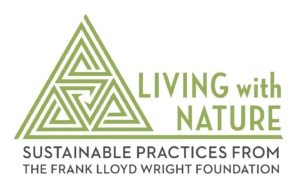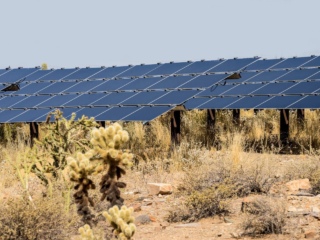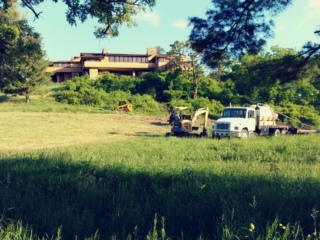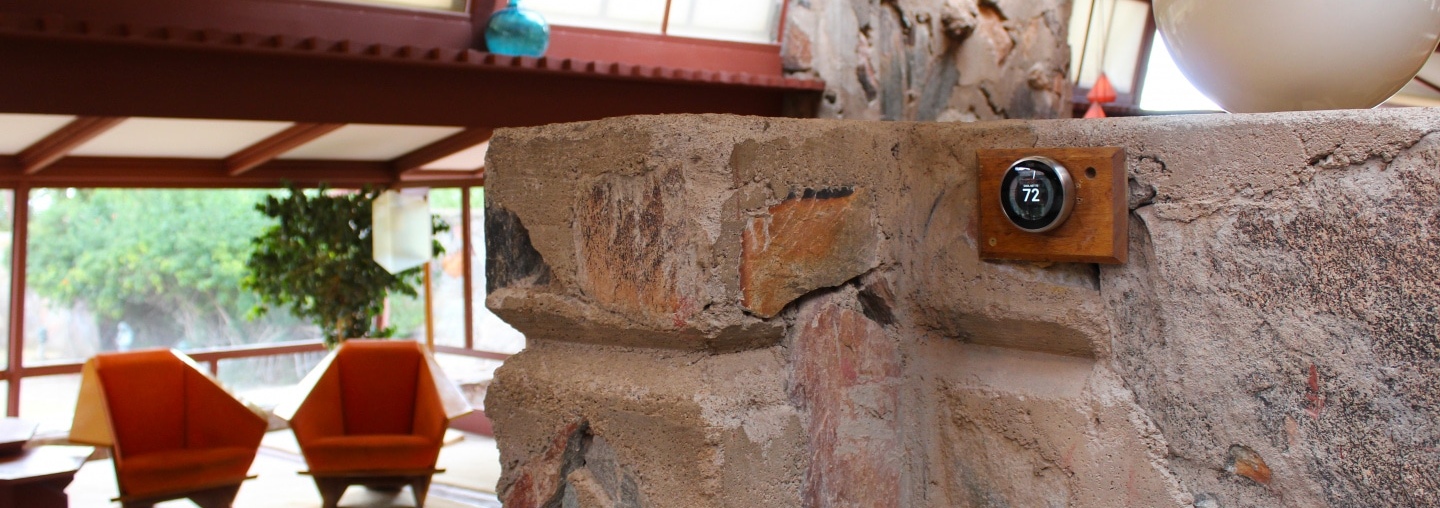
Living with Nature: Small Things that Make a Big Difference
Frank Lloyd Wright Foundation | May 21, 2019
As the Frank Lloyd Wright Foundation embraces more sustainable, innovative practices in our preservation work and beyond, we’re sharing some of these methods, and providing some tips on how you can incorporate these practices into your own home and life. Here, we discuss some small changes we’ve made at Taliesin and Taliesin West, and share some easy solutions you can implement at home.
While reducing your energy consumption may seem like a huge lifestyle change, there are a number of small adjustments that can make a big difference over time. In this edition of Living with Nature: Sustainable Practices from the Frank Lloyd Wright Foundation, we’re focusing on those small changes that can greatly reduce energy consumption and cost. At Taliesin West, Wright’s winter home and desert laboratory in Scottsdale, Arizona, we’ve taken several of these small steps, which have led to huge improvements.

A tankless, compact water heater at Taliesin West.
At Taliesin West, we’ve replaces all of our incandescent lightbulbs with LED lightbulbs. These traditional incandescent bulbs use 60 watts, while the new LED bulbs use only six watts.
We’ve replaced several of our hot water heaters with smaller, compact systems that use much less power to heat water.
We’ve also partnered with Nest to install programmable thermostats throughout the Taliesin West property, which allow more control of room temperature including automatically turning off or reducing heating and cooling of spaces when they are unused. On average, according to Energy Star, a programmable thermostat can save you up to $180 per year in energy costs.
These are things that are not only available to large historic sites like Taliesin and Talieisn West, you can make these changes at home too. Replacing lightbulbs, installing tankless water heaters, getting programmable thermostats, and switching to smart power strips are just a few of the ways you can attain big savings and less overall energy consumption.
Simple habit changes can also lead to massive savings. A large source of energy waste is when electronics are left plugged in when they aren’t being used. According to EnergySage, it is estimated that 75% of the energy used to power household electronics is consumed when they are switched off, which can cost you up to $200 per year. A simple solution to this issue is to invest in smart power strips, which can help eliminate the problem by shutting off the power to electronics when they are not in use. Smart power strips can be set to turn off at an assigned time, during a period of inactivity.
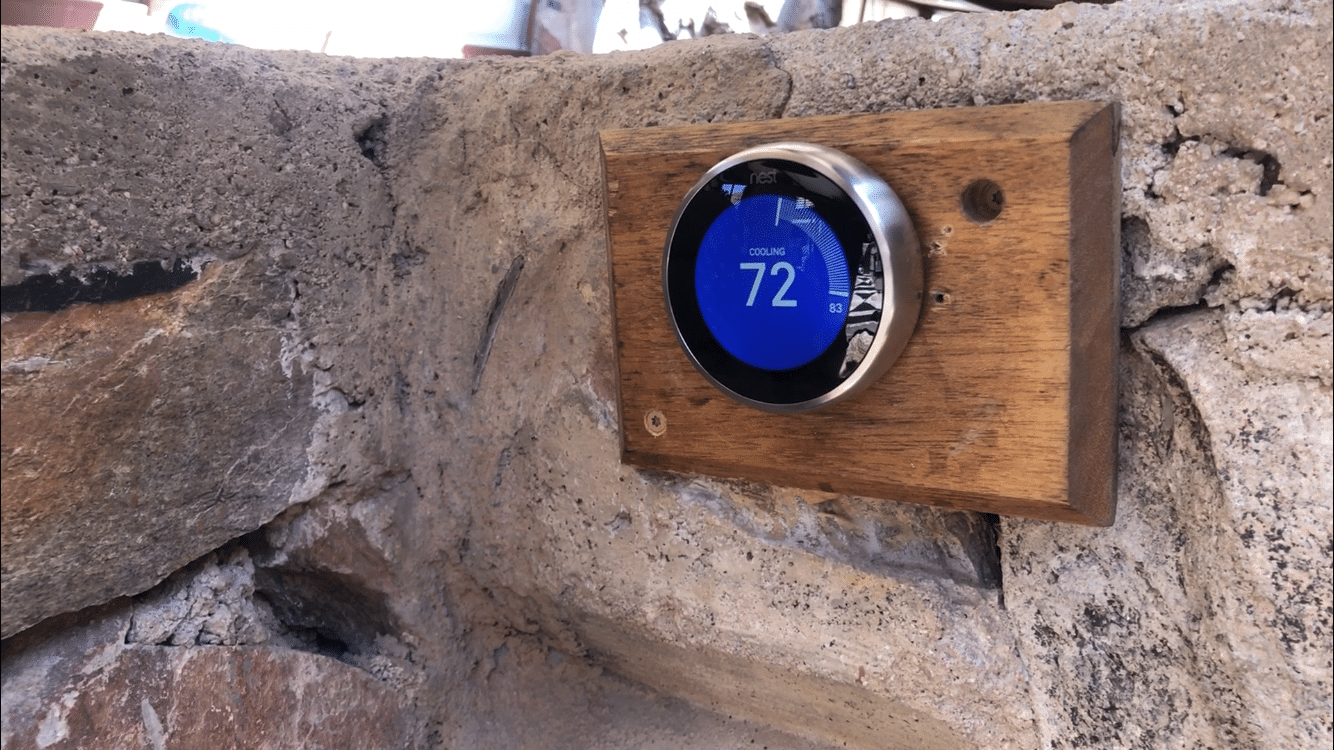
A programmable Nest thermostat in the Garden Room at Taliesin West.
Here are some more great tips on how you can implement these ideas into your home and life:
- Use daylight instead of turning on your lights, this can decrease your energy bill by up to 10-40%. Turn off lights when you aren’t using them.
- Look for Energy Star options whenever possible, these are approved energy-saving products.
- Plug gaps on your doors and windows, this will keep air infiltration at a minimum.
- Fix that leaky sink! A leak could waste up to 100 gallons of water a year.
- Set the sleep mode on your computer, you can save up to $40 a year on your energy bill while also reducing your power consumption.
Learn more about the sustainable practices we’re using at Taliesin and Taliesin West, and for even more tips on how you can help contribute to a more sustainable, beautiful world.
Learn more Living With Nature tips
Living with Nature: Sustainable Practices from the Frank Lloyd Wright Foundation is a year-long campaign where we’ll be sharing sustainable practices and how they play an important part in conservation for National Historic Landmark sites, like Taliesin West in Arizona and Taliesin in Wisconsin. Along the way we’ll be sharing helpful tips on how you can incorporate these practices into your own life, to help you live a more green life.

